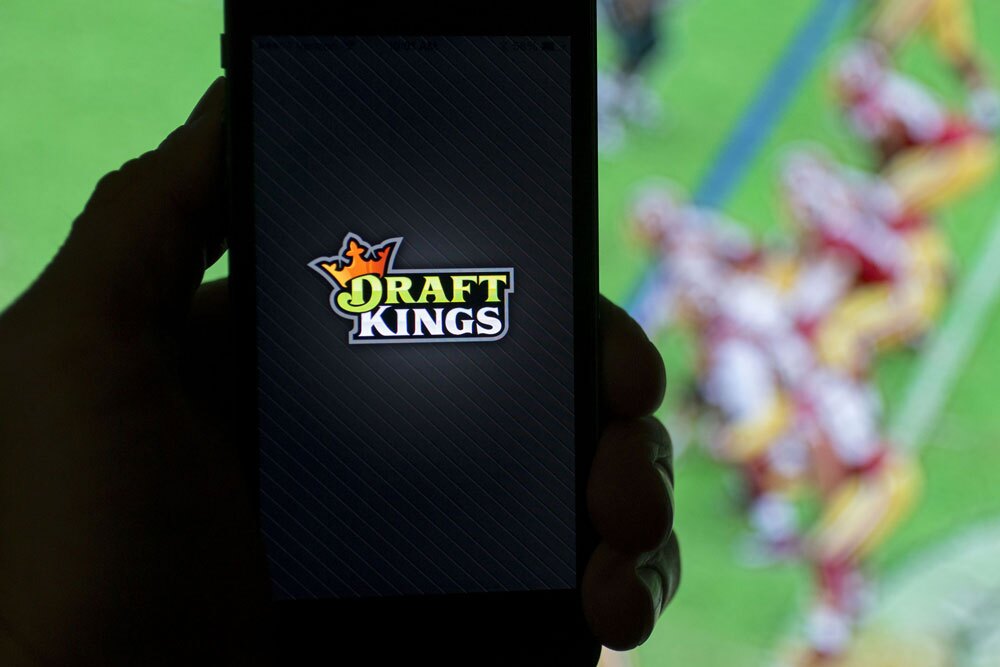Nate Anderson’s Hindenburg Research, the short activist firm that burst onto the scene last fall with an exposé of electric truck maker Nikola, is back with its fifth big takedown of a special-purpose acquisition company.
This time Anderson has set his sights on DraftKings, the online gambling site which went public in one of the hottest SPAC deals of 2020. His firm alleges that DraftKings has “extensive dealings in black-market gaming, money laundering, and organized crime.”
Although the company “has been heralded as the key SPAC ‘success story,’” Hindenburg wrote on Twitter, “we think it represents the dying embers left by yet another Wall Street loophole.”
Last year, DraftKings went public in a three-way merger with SPAC sponsor Diamond Eagle Acquisition and a Bulgaria-based gaming technology company called SBTech.
It was an immediate hit. Along with Chamath Palihapitiya’s SPAC deal with Virgin Galactic and the blank-check company merger with Nikola, which counted activist hedge fund manager Jeff Ubben as a key investor, the DraftKings deal helped ignite the SPAC boom that crashed earlier this year.
As of the time of the Hindenburg report, DraftKings’ stock was still up almost 400 percent since its deal announcement, which the report said was “fueled by retail enthusiasm over recent deregulation in the gambling market and helped in large part by its clean corporate image.”
The stock fell about 11 percent on the report before the market opened Tuesday, but it had recovered most of that during normal trading hours and was down only 4 percent at market close.
Other short sellers were blasé. “Connecting a gambling business with organized crime is like connecting the Pope with Catholicism,” said one short seller who nonetheless added that DraftKings is “a financial farce of a company.”
Veteran short seller Marc Cohodes tweeted that DraftKings “is a piece of junk” but said he had not read the report.
Meanwhile, Redditors were already promising to bid up the stock. “Apes need to rise for DKMG” – DraftKings’ stock symbol — wrote one member of WallStreetBets, the subreddit credited with driving the GameStop stock surge in January.
Hindenburg focused its report on the Bulgarian company SBTech, which it said accounted for about 25 percent of “DraftKing’s total revenue at the SPAC consummation and was the only positive contributor to operating income.”
The short activist estimated that roughly “50 percent of SBTech’s revenue continues to come from markets where gambling is banned, based on an analysis of DraftKings’ SEC filings, conversations with former employees, and supporting documents.”
Hindenburg added that “SBTech has a long and ongoing record of operating in black markets,” based on its inspection of back-end infrastructure at illicit international gaming websites.
“As one former employee told us, DraftKings’ subsidiary SBTech has ‘sold to plenty of mobs’, a sharp contrast to the clean image of DraftKings’ brand-conscious partners, including the NFL, NBA, NASCAR, UFC, and PGA, and the company’s recent hire of supermodel Gisele Bundchen to advise on governance issues,” the report noted.
Hindenburg claimed that prior to the SPAC merger, SBTech tried to distance itself from its black-market dealings, putting “illicit customer relationships” into a newly formed “distributor” entity called BTi/CoreTech.
But the CEO selected to run that company was formerly an executive of a gambling firm raided by the FBI and subsequently charged by the Securities and Exchange Commission for “deceiving U.S. investors out of over $100 million,” according to the report.
Former employees called “BTi/CoreTech a ‘front’ [that] functions as DraftKings’ undisclosed illegal gaming division,” Hindenburg stated.
A DraftKings statement dismissed the report as one “written by someone who is short on DraftKings stock with an incentive to drive down the share price.”
“Our business combination with SBTech was completed in 2020,” the firm added. “We conducted a thorough review of their business practices and we were comfortable with the findings. We do not comment on speculation or allegations made by former SBTech employees.”
Jeff Sagansky, the media executive turned SPAC dealmaker who headed the blank-check company that took DraftKings public, has a checkered record with SPACs, as Institutional Investor reported last year.
DraftKings, his sixth SPAC, has been his runaway winner. According to the Hindenburg report, the SPAC sponsors including Sagansky ultimately received 9.3 million shares, worth around $114 million at the time, in exchange for a token $25,000. The stock peaked at $74.38 this year. If those shares were still held at that time, they would have been worth about $690 million.
Hindenburg’s other SPAC shorts have also included Lordstown Motors, an electric light duty truck start-up focusing on the commercial fleet market, which is down almost 50 percent this year. Yesterday its CEO and CFO resigned, and its stock fell below the $10 IPO price.
While Anderson did not take a short position in Palihapitiyia’s Clover Health Investments, early this year his firm put out a research report on the company that noted it was the focus of an undisclosed Department of Justice probe. The stock, which recently had a big runup, is still down almost 18 percent this year.
He also shorted PureCycle, which Hindenburg called “the latest zero-revenue, ESG-themed SPAC taken public with a bold story about how it will someday revolutionize the plastics recycling industry.”
Anderson’s first big splash in the SPAC world was its Nikola short report, which included an explosive video of a truck rolling down a hill — and not operating on its own. Over the past year Nikola’s stock has fallen 75 percent.







